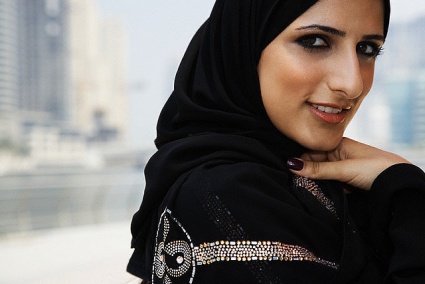February 18, 2014
A Muslim woman's tragic death in Montreal

Writing in the Toronto Star, Humera Jabir, a law student, commented on the difference in how French and English media treated the death of Naïma Rhaouity, a Moroccan immigrant who died tragically in the Montreal métro. The exact cause of death is not precisely known, but it appears that either her hijab or some other piece of clothing caught in the escalator mechanism, dragging her down and then catching her hair in the mechanism as well, chocking her to death.
There were no Islam phobic sentiments expressed by the media, either English or French. Both were sympathetic and spoke of her good works in the community.
However, the French language blogsphere was a different matter: “One less terrorist.” “It was her own fault.” “One less veil.” “The Charter (of Values) will save us.” “Where was Allah?” “We need escalators in all Muslim homes.” Less vicious but still prejudiced were comments by readers of the Journal de Montréal, who demanded that Muslims integrate and not impose themselves on the majority.
How can we explain such bigotry?
The first thing to note is that prejudice in Quebec is long-standing and more extreme than in the rest of Canada. Premier Pauline Marois and others in the Parti Québécois assure the world that Quebec is an open, tolerant society and that the Charter of Values is not discriminatory. Statistics tell a different story.
In 2008, Léger Marketing did a survey of attitudes toward minorities. In Canada as a whole, 7% had a negative attitude toward Jews, compared to 27% in Quebec. For Muslims, the figures were 33% for Canada and 49% for Quebec.
The extent of Quebec xenophobia has several explanations. Let’s look at three. Historically, Quebec’s ruling class was English. Since the Quiet Revolution (the 1960’s), that has changed dramatically, but anti-English sentiment persists. As for immigrants, they are not “us”, and so they do not reinforce the culture and the resistance. “We” defend ourselves against all “les autres”, the others.
Another factor is the historic role of the Catholic Church, which in Quebec has been particularly reactionary and xenophobic. While the influence of the Catholic Church has declined, elements of this history still mark the culture. Interestingly, the Catholic Church in Quebec has undergone a change. It now, for instance, raises question about the Charter of Values, pointing out that the ban on the hijab will drive Muslim women out of the workforce and confine them to their homes, isolating them from society.
Then, paradoxically, there is the reaction against the Catholic Church. Quebeckers are now often quite hostile to the Church, and they stay away massively from Sunday services. Religion is a bad word for many of them. And as Monia Mazigh explained recently, Quebeckers are now confronted by a large group of immigrants who take religion seriously. The backlash against the Catholic Church sweeps them up as well.
Having looked at the negative side, we should not forget the positive. 73% of Quebeckers did not express anti-Semitic prejudice, and 51% did not express prejudice against Muslims. In the words of Martin Luther King Jr., “We’ve come a long, long way, but there is a long, long way to go.”
Kind-hearted Quebeckers piled flowers at the site of the accident in sympathy with this generous but unfortunate woman and her family.








